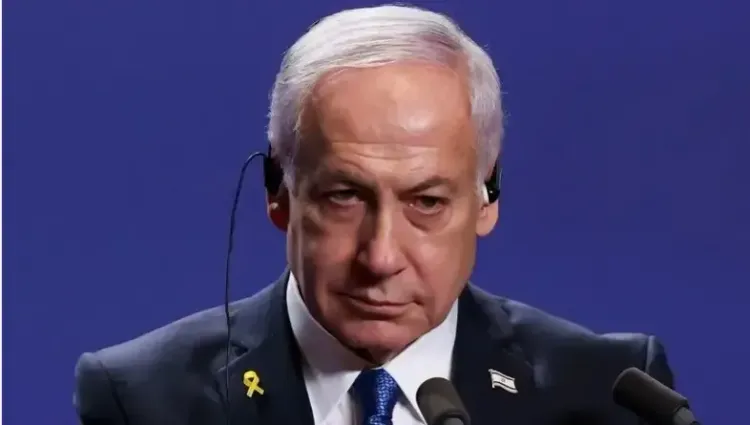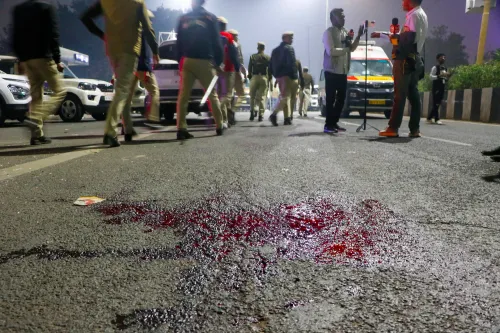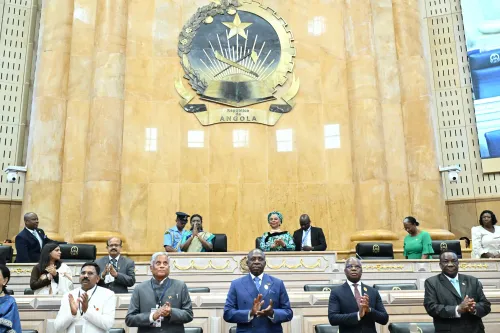Israeli Prime Minister Asserts Iran Will Not Gain Nuclear Weapons

Synopsis
Key Takeaways
- Netanyahu emphasizes Israel's resolve against Iran's nuclear ambitions.
- Iran's nuclear program discussions with the US continue.
- Israel accuses Iran of pursuing nuclear weapons capability.
- Netanyahu has undertaken numerous actions against Iran's nuclear efforts.
- International negotiations regarding Iran's nuclear program are ongoing.
Jerusalem, April 18 (NationPress) Israeli Prime Minister Benjamin Netanyahu has firmly stated that Israel will not permit Iran to develop nuclear arms, especially amidst indications of renewed discussions between Tehran and the US government regarding a potential nuclear accord.
The Prime Minister has reiterated numerous times: Israel will not let Iran acquire nuclear weapons,
Netanyahu's office emphasized on Thursday. The statement further noted that Netanyahu, who perceives Iran as Israel's primary adversary, has initiated numerous overt and covert operations against Iran's nuclear ambitions and has spearheaded the international campaign opposing Iran's nuclear program.
Iran's Foreign Minister Seyed Abbas Araghchi recently met with US special presidential envoy Steve Witkoff in Muscat, Oman, to discuss Tehran's nuclear developments, with both parties labeling the encounter as 'constructive'.
This meeting in Muscat followed US President Donald Trump's declaration in early March, where he conveyed a letter to Iranian authorities, delivered via the United Arab Emirates, proposing discussions regarding Iran's nuclear agenda, according to the Xinhua news agency.
Iran subsequently consented to indirect negotiations.
Israel and several Western nations have long accused Iran of seeking nuclear weapons capabilities, a charge that Tehran has persistently rejected.
Even prior to the outbreak of the Gaza conflict, ignited by Hamas's attack in October 2023, Netanyahu frequently criticized Iran for its support of Hamas and other militant factions currently engaged in confrontation with Israel.
'The Prime Minister has directed numerous overt and covert initiatives in the fight against Iran's nuclear agenda, without which Iran would have a nuclear arsenal today,' the statement asserted.
'These initiatives have delayed Iran's nuclear program by almost a decade.'
Netanyahu's remarks come just ahead of a second round of Omani-mediated talks between US and Iranian representatives, scheduled to occur in Rome this Saturday.
Trump's attempts to negotiate with Iran concerning its nuclear program through mediation starkly contrast with Netanyahu's longstanding strategy of addressing the situation through military means.
'Prime Minister Netanyahu has been at the forefront of the global initiative against Iran's nuclear ambitions for over a decade, even when some dismissed the threat and labeled it as 'political spin' and referred to the Prime Minister as 'paranoid.',' his office stated.
In March, Trump had dispatched a letter to Iran’s Supreme Leader Ayatollah Ali Khamenei, urging dialogue but also cautioning about possible military action if no agreement was reached.
While Netanyahu has been advocating for the US to adopt a firmer stance, a recent report indicated that Trump had thwarted an Israeli plan to attack Iran’s nuclear sites.
Officials from the Trump administration disclosed to the Times that Israel had requested Washington's assistance to execute an offensive against Iranian nuclear facilities in May.
According to the report, the strategy and its potential maneuvers had been under review for several months.
However, during Netanyahu’s recent visit to the White House, Trump informed the Israelis that he would not endorse an assault. Instead, the president publicly announced direct negotiations with Tehran.
On Thursday, Rafael Grossi, the chief of the UN nuclear watchdog, urged both parties to finalize an agreement, emphasizing that time is of the essence.









